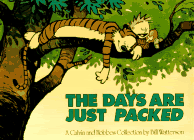
Jingle bell, jingle bell, jingle bell rock.
Jingle bell rings while jingle bell sings.
Rowing and prancing and jumping to sing.
That's the jingle bell that i want to ring...
hey. it's my blog.
 The gray-lit sky outside the windows tells me the sun forgot to shine. I have to wear socks and thick jogging pants just to stop shivering. All this cold air will keep coming after me until I close the windows shut, and even then, the stillness around me will not let up. I love storms. I love them better on weekdays.
The gray-lit sky outside the windows tells me the sun forgot to shine. I have to wear socks and thick jogging pants just to stop shivering. All this cold air will keep coming after me until I close the windows shut, and even then, the stillness around me will not let up. I love storms. I love them better on weekdays. You know what you need to unwind your brain? A Ferris wheel. No kidding. You sit inside one of those squarish buckets and ask the manong to crank it up to full speed. Disappointingly slow at first, and then weeeeee! The centrifugal force whirls your worries up and around and away from you! You walk away from that experience with a renewed sense of wow. Imagine, no man involved. If your knees are wobbly, it's not because you've been banged inside out. It's because of the Endorphins streaming in your brain and the adrenalin you've pumped during all that whirling. If you throw up after, it's not because you're preggy; it's because the small, hair-like organs in your ears, the ones that can sense balance in your life, have been jolted out of their routine. If you moan, and someone hears you do so, it's ok. Unlike in that alternative, with a man involved. And there's no morning-after awkwardness. Hell, no. Instead, the awkwardness is immediate. "Ma'am, aren't you too old to act like that?" the manong manning the Ferris wheel asks, just before you give him a right hook, one so sincere it would make Manny Pacquiao proud. But then you are still woozy, and you miss the manong's jaw by no less than two feet. You land back-first on the cold pavement. The onlookers crowd around you and wonder why you have that silly smile. You savor the moment and continue to smile. Seriously, who needs a one-night stand when you have a Ferris wheel?
You know what you need to unwind your brain? A Ferris wheel. No kidding. You sit inside one of those squarish buckets and ask the manong to crank it up to full speed. Disappointingly slow at first, and then weeeeee! The centrifugal force whirls your worries up and around and away from you! You walk away from that experience with a renewed sense of wow. Imagine, no man involved. If your knees are wobbly, it's not because you've been banged inside out. It's because of the Endorphins streaming in your brain and the adrenalin you've pumped during all that whirling. If you throw up after, it's not because you're preggy; it's because the small, hair-like organs in your ears, the ones that can sense balance in your life, have been jolted out of their routine. If you moan, and someone hears you do so, it's ok. Unlike in that alternative, with a man involved. And there's no morning-after awkwardness. Hell, no. Instead, the awkwardness is immediate. "Ma'am, aren't you too old to act like that?" the manong manning the Ferris wheel asks, just before you give him a right hook, one so sincere it would make Manny Pacquiao proud. But then you are still woozy, and you miss the manong's jaw by no less than two feet. You land back-first on the cold pavement. The onlookers crowd around you and wonder why you have that silly smile. You savor the moment and continue to smile. Seriously, who needs a one-night stand when you have a Ferris wheel?
 Hi, my name is Ayen. I, ah, change my PC's desktop wallpaper every, ahm, fifteen minutes. It's not an obsessive compulsive disorder, nothing like that, I'm sure. Just that the wallpaper dulls a bit after a while and I just have to reach into my picture folder and try out some new ones. More of to jibe the image with my current mood. Nothing wrong there, right? Ah, good. Now I have thin blades of grass, a close up of them, with the blue sky in a fade from light blue to darker blue from bottom to top, and the blades are caught in a still slant to the right, like the wind shoved them there when the camera shutter closed, only that a digital camera was used. I stole this from flickr, you should steal photos from there, too. Neat collection. One time I stretched on my desktop this carefully framed detail of a zen garden. A rock smaller than a quarter of the PC screen rests of the upper right corner, and the sand around it ripples in concentric circles. Someone raked it into that pristine stillness. I turned it into gray scale and adjusted the contrast. You can do that to images with a lot of image tinkering tools, like Photoshop, or Picasa. Ooops, that's it. I'm bored again. I'm flipping through pictures again, large wallpapers, in my picture folder. There's a closeup of a crab on a sunny beach with the hazy image of a couple in the background. I love this one. I stole it. From flickr. It's been fifteen minutes. And you know my name. How fleeting.
Hi, my name is Ayen. I, ah, change my PC's desktop wallpaper every, ahm, fifteen minutes. It's not an obsessive compulsive disorder, nothing like that, I'm sure. Just that the wallpaper dulls a bit after a while and I just have to reach into my picture folder and try out some new ones. More of to jibe the image with my current mood. Nothing wrong there, right? Ah, good. Now I have thin blades of grass, a close up of them, with the blue sky in a fade from light blue to darker blue from bottom to top, and the blades are caught in a still slant to the right, like the wind shoved them there when the camera shutter closed, only that a digital camera was used. I stole this from flickr, you should steal photos from there, too. Neat collection. One time I stretched on my desktop this carefully framed detail of a zen garden. A rock smaller than a quarter of the PC screen rests of the upper right corner, and the sand around it ripples in concentric circles. Someone raked it into that pristine stillness. I turned it into gray scale and adjusted the contrast. You can do that to images with a lot of image tinkering tools, like Photoshop, or Picasa. Ooops, that's it. I'm bored again. I'm flipping through pictures again, large wallpapers, in my picture folder. There's a closeup of a crab on a sunny beach with the hazy image of a couple in the background. I love this one. I stole it. From flickr. It's been fifteen minutes. And you know my name. How fleeting.
"Overspecialize and you breed in weakness."I'm differentiating between achievements and duties: I'm updating my résumé. I'm sorting through my previous published and ghostwritten work: I'm updating my portfolio. I'm at home taking in odd writing jobs and taking care of my wife: my bundy-clocking days are over.- Major Motoko Kusanagi, in the anime film Ghost in the Shell
When Mother and I pushed the boxes deeper into the back of the truck, a neighbor asked if we were leaving that apartment, the one that looked down on the road, with its second floor roof as pointed and quiet and still as that of a church's. Mother said yes as I carried more boxes piled up on the sidewalk into the truck. Neighborly small talk was rare for us, and Mother wiped her hands on her flowery shapeless duster's sides and chatted, with a wrinkled old man with sideburns, taking a break from moving the contents of our lives into yet another anonymous vehicle. We were used to this. All this moving from house to house, but this house, I never wanted to leave this house, this two-floored oddly-placed dwelling on the elbow of nowhere.Mother, in the piece, finds her Sunday, but even though the persona of the "I" does not, the piece ends on a note of hope. Eighteen pages of home remembered and described and a plot found and connected through scenes and sometimes, interior monologue. The narrative is told, or at least attempted to be conveyed, through understatement--a technique for which I only have this lifetime to perfect. Kerima Polotan has perfected it. So has her daughter, Kimi, who is my classmate in Jing's class. I also do not have Ricci's arsenal of imagery and mood achieved through metaphors and turns of phrase. I am not a poet like she is. (There is so much work to do. Ricci, by the way, is another classmate, and is already a teacher of creative writing. Compared to most of the people in class, I am an upstart.)
 Yup. We're digging this place up and building almost from scratch. Most of the contents of Boulevard Avenue will be moved here, like old furniture. I've been running back and forth between blogs--old and new--and I've been seeing a lot of my old posts. Like old furniture, some of them could use some tweaking, if I ever plan to display them again. So, while I relearn how to speak html, I will keep writing about life as it shoves me around. Meanwhile, you will please notice some links on the sidepage. A lot of them are busted. Some just link back to where I began. Got a lot of work to do. Anyway, I'm trying to lift an entire section, a whole street of my life if you will, and making it feel at home in a new city. Hope you like this place. Because I do. See you around.
Yup. We're digging this place up and building almost from scratch. Most of the contents of Boulevard Avenue will be moved here, like old furniture. I've been running back and forth between blogs--old and new--and I've been seeing a lot of my old posts. Like old furniture, some of them could use some tweaking, if I ever plan to display them again. So, while I relearn how to speak html, I will keep writing about life as it shoves me around. Meanwhile, you will please notice some links on the sidepage. A lot of them are busted. Some just link back to where I began. Got a lot of work to do. Anyway, I'm trying to lift an entire section, a whole street of my life if you will, and making it feel at home in a new city. Hope you like this place. Because I do. See you around.
 Word-weaver. On quiet mornings, Ayen's sleepy eyes open and he rushes to the keyboard running after words he faintly heard, if only his 60-word per minute fingers can catch them, before they fade into silence. He likes to think that his MA Creative Writing classes at UP Diliman are either smoothening his prose or jacking up his typing skills.
Word-weaver. On quiet mornings, Ayen's sleepy eyes open and he rushes to the keyboard running after words he faintly heard, if only his 60-word per minute fingers can catch them, before they fade into silence. He likes to think that his MA Creative Writing classes at UP Diliman are either smoothening his prose or jacking up his typing skills. The domesticated man. To Ayen and his wife, Anne, their six-plus cats are stress-relieving stuffed toys who shed all over the house but just won't fit inside the tubes of the vacuum cleaner. They won't fit because they inspect the contents of the refrigerator everytime it's open, and they eat as though they were refugees who, right after reaching the shore nearly starved to death, heard on the radio that the world will end by lunch time.
The domesticated man. To Ayen and his wife, Anne, their six-plus cats are stress-relieving stuffed toys who shed all over the house but just won't fit inside the tubes of the vacuum cleaner. They won't fit because they inspect the contents of the refrigerator everytime it's open, and they eat as though they were refugees who, right after reaching the shore nearly starved to death, heard on the radio that the world will end by lunch time. Pen for hire. Though he is presently bundy-clocking at the University of the Philippines Diliman Information Office, Ayen also freelances to suit your writing needs. His cat, Bolabola, is always screening his emails, so you'd better address the cat nicely. Send Ayen a note at animnakambing AT yahoo DOT com.
Pen for hire. Though he is presently bundy-clocking at the University of the Philippines Diliman Information Office, Ayen also freelances to suit your writing needs. His cat, Bolabola, is always screening his emails, so you'd better address the cat nicely. Send Ayen a note at animnakambing AT yahoo DOT com.
A veiled woman walking down the street caught my eye. So still were her shoulders when she walked. The air around me thickened. A breeze unveiled her face, undressing her long hair and I couldn't breathe or move at the sight of her. "Shoot to kill!" my captain roared from behind me. "She's the infidel we're looking for!"Abi
She poured a spoonful of the skull-marked bottle and swallowed it. Bitter. Just a slight sting in her stomach. She expected nausea but it didn't come. But then, that's me, she thought. I can take on anything. Except him. Him was the he walking back from the men's room, dodging other restaurant customers, flirting, with his brown eyes, with the waitresses. She took a menu from a waiter passing by and propped it up on her table for two, shading the gestures of her hands. She emptied the bottle on his coffee. "Hi, love," he said and she glared at him, and then she looked away. "I'm sorry. Old habit." After a thick silence, he said, sipping his coffee. "You sure there are no hard feelings?" She put everything she had in that smile.
promise it to the wind, write it on water, and hope someone will remember

Copyright. boulevard avenue. All Rights Reserved. Blogger Template by ChicaBlogger | QuickChic WP theme by Quick Online Tips